Why build an Orb?
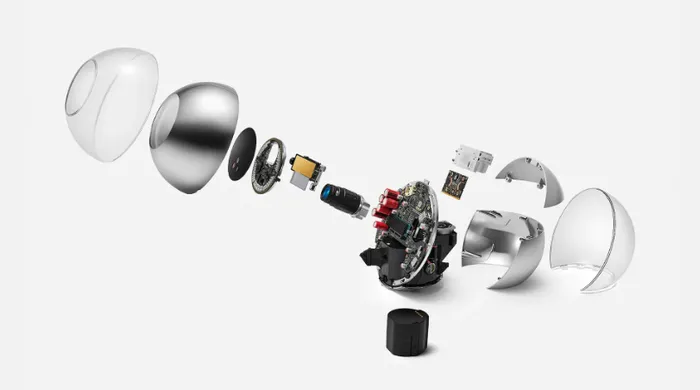
Why scan eyeballs?
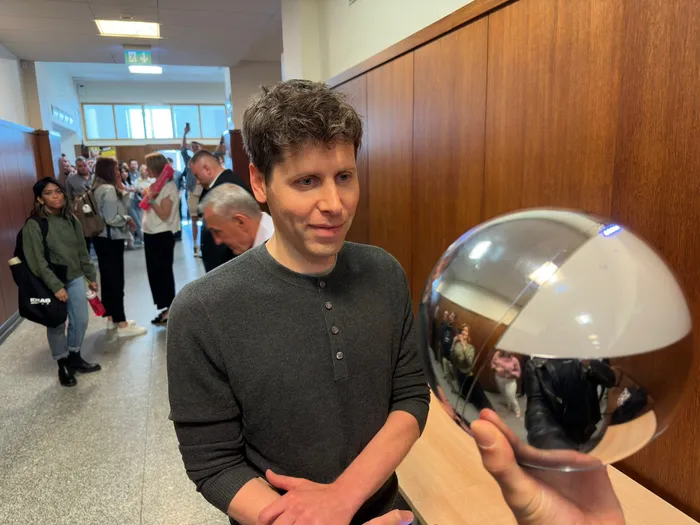
Why go worldwide?

There’s no single answer to these questions. But I like to think about Worldcoin’s vision across three distinct time frames: the short, medium and long-term.
The Short Term
As anyone on X can attest, bots are a serious problem. My DMs and mentions are littered with scammy crypto projects. Recently, they’ve all been Worldcoin scams, which is kinda ironic. But the point is that spam is likely to get worse before it gets better. Why? Because as open-source LLMs like Meta’s Llama and the UAE’s Falcon continue to improve out in the wild, every scammer and bot farm is about to be equipped with a genius, ultra-fast and nearly free sidekick. Spam is uponly in the age of AI.
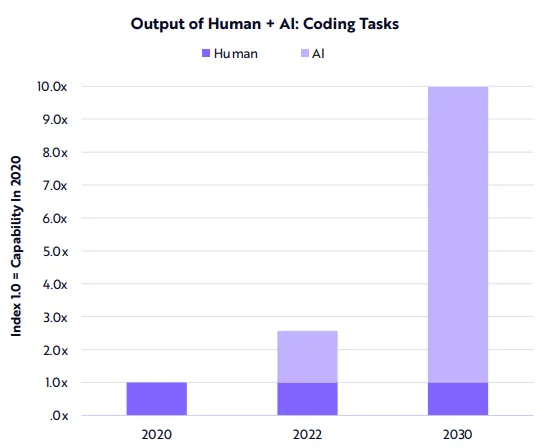
Ark Invest
Surprisingly, spam has proven a difficult problem to solve.
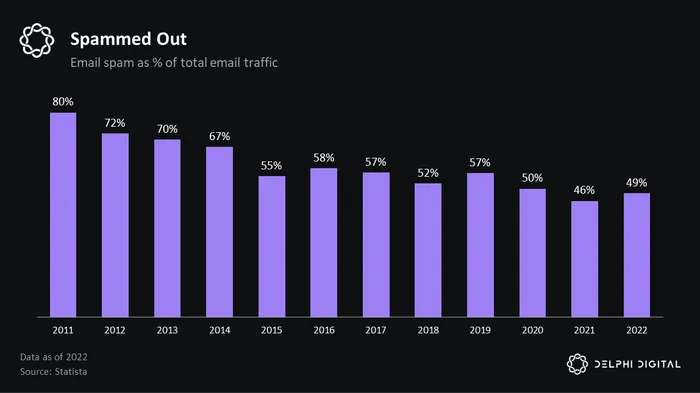
We’ve managed to will intelligence into sand, launch and land rockets, and now appear on the cusp of superconductivity — yet we’ve been battling spam since the dawn of the Internet.
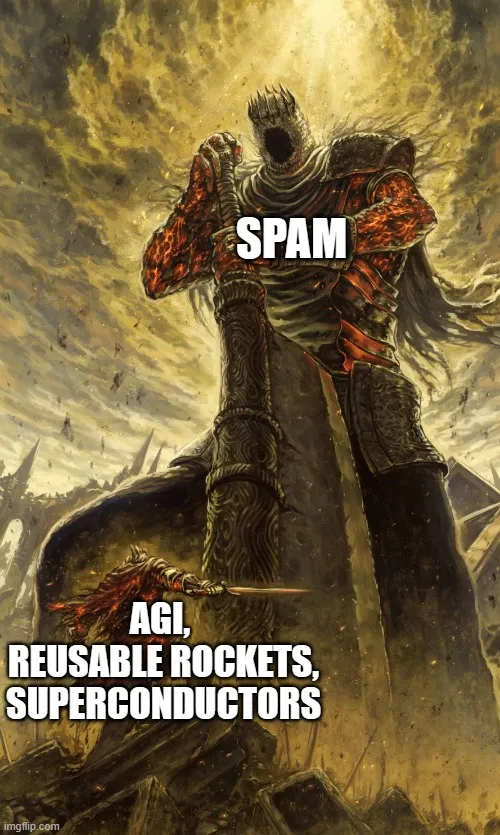
Humanity’s hatred of spam is a truly intersectional issue. Elon Musk isn’t the only one worried about it; Taylor Swift is too! You might remember what happened when T-Swift dropped her Eras-tour concert tickets — yanno, the same tour that global central banks are now talking about.

When T-Swift dropped her concert tix on Ticketmaster, the site essentially insta-crashed. Some of the traffic was legit humans who were just zealous Swifties. But a lot of the traffic was nonhuman — bots, computers and algos all tryna scoop up tickets and corner the Swiftie market.

The whole debacle pissed a lotta people off. Taylor Swift was pissed…

Fans were pissed…

And Ticketmaster itself was pissed.

Everyone was pissed!

So how do we fix this? Well, at a high level, what you really want to do is only allow human beings onto your site. And exclude all non-human beings like bots, algos and AIs. Remarkably, everyone seems to intuitively know this! But the best solutions we have to date are captchas…

and $8/month.

These “solutions” might work today with GPT-4 and limited OS peers.

But they will not work tomorrow when the “AI overhang” manifests itself.
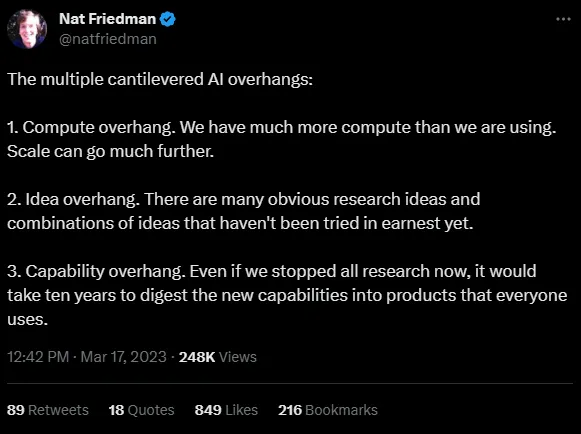
It goes without saying that we shall not build AGI and the Future of France with captchas and $8/month.
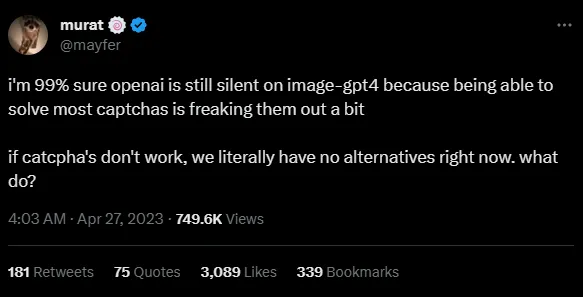
As the world transitions into an era of uponly sophisticated spam, some company somewhere will say, “enough is enough,” and actually get serious about solving the underlying problem and verifying that its users are, indeed, human. Worldcoin could help today.
The Medium Term
If you’ve played around with chatGPT or Midjourney, then you know that it’s become pretty hard to tell the difference between human and AI-generated content on the internet.

Can you tell which is human vs AI? Answer.
The past year in generative AI has been eye-opening.
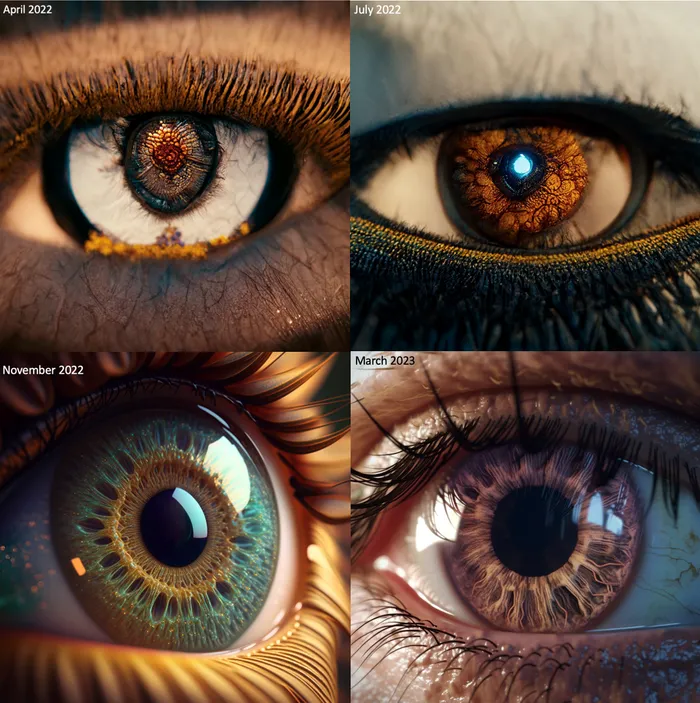
“A human eye extremely close up, hazel iris, lace-like iris, eyelashes visible framing the image, extreme closeup, the pupil reflects the rest of the room, the eye is staring into the future in awe, highly detailed, film study.” — Brett Winton x Midjourney
We’ve already discussed the societal impact AI-generated content is having in “AI Moves Markets.”

AI-generated image of an explosion at the Pentagon, which triggered a ~$250B drop in the S&P500
But the longer I think about it, the more worried I get.

A deepfake video of Ukrainian President Volodymyr Zelensky telling his countrymen to surrender to Russia
The fundamental question we all must ask ourselves is, what kind of Internet do we want? An Internet where we can no longer tell the difference between human vs AI and real vs fake? Or an Internet where humans and AIs coexist in a trusted, ruled-based environment?
Right now, we don’t have the necessary mechanisms to vet content and ensure its, uh, humanity? What we really need is robust attribution and identity primitives that are diffused across the Internet. Blockchains and their ability to provide granular attribution could help solve the former. And Worldcoin and its privacy-preserving World ID could help with the latter.
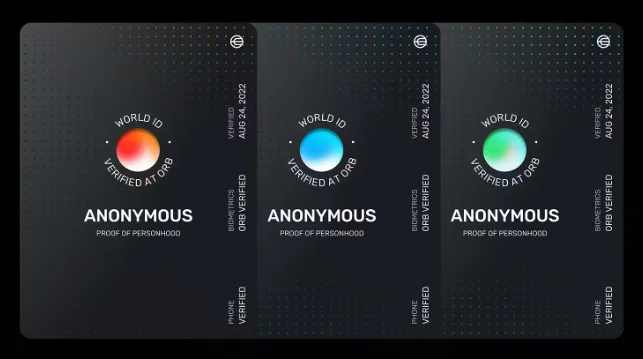
Let’s use Twitter as an example. Right now, users can pay $8/month for a blue check mark. At this point, the check mark gives you a small algo virality boost and proves, uh, that you have at least $8 in your bank account. It doesn’t do much else. It’s not inconceivable to think that a motivated hacker (e.g. nation-states like China, Russia, Iran) could spin up an AI that could handle the monthly payments and phone number needed to acquire a blue check mark. And — boom! — all of a sudden, there are 1,000s of malicious AI blue check marks floating around Twttr.
Instead of tying identity to the ability to have a phone number or pay $8/month, what apps like Twttr really aspire to do is tie each account to an actual human being. This way, if said human being misbehaves — say by posting deepfakes of political leaders in an attempt to mislead the public — the individual in question can be kicked off the platform. Again, everyone knows this! But no product has solved this problem yet. Worldcoin offers a solution by tying digital identities back to individual human beings in a privacy-preserving way.
The Long Term
We are on an exponential curve in AI right now. In 20 years, AI has gone from being a lot dumber than humans to a lot smarter than the majority of humans.

Metaculus, a community of scientific experts, now believes the world’s first AGI will be announced by 2033 — ten years from today.
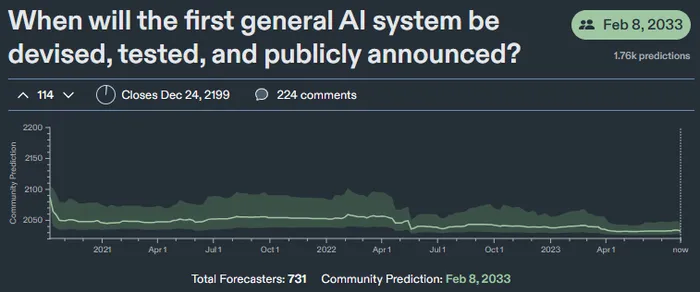
Over the past year, the community’s “wen AGI” prediction has dropped by 10 years, falling from 2043 to 2033, as systems like GPT-4 and Midjourney forced everyone to accelerate their AGI timelines.
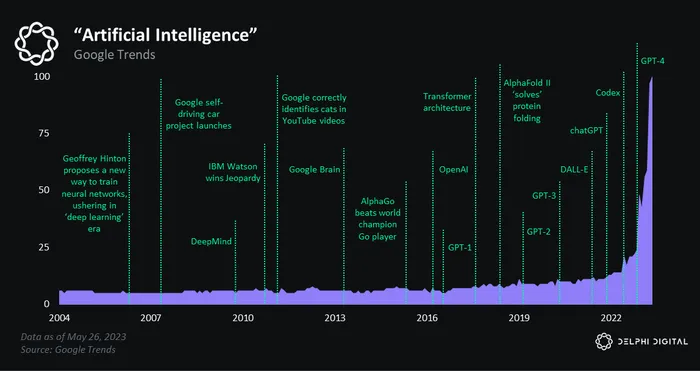
We might not like to admit it, but we’re all guilty of changing our definition of the “Turing Test” as well. Classically, the Turing Test involves a human evaluator who interacts with both a human and a machine designed to generate human-like responses. The evaluator’s job is to determine which of the two is the machine. All interactions are typically carried out through text-based communication to prevent the evaluator from distinguishing between the participants based on appearance or voice.
Idk about you, but if I’m honest with myself, I’m not confident I could differentiate between a random tweet written by a human vs AI. I mean, we humans are kinda smart and kinda special lil snowflakes. But we’re not that smart nor that special anymore.

Pictured: what’s trending on my Twttr account
The future is here and we’re already living in it. Things are only gonna get weirder from here. And perhaps one of the weirdest possible AGI outcomes is not that AI will score higher on the SAT than us, but the idea that an AI may accrue more wealth than any human, company, or nation-state ever has before. There’s nothing stopping the chart below from going to actual zero.
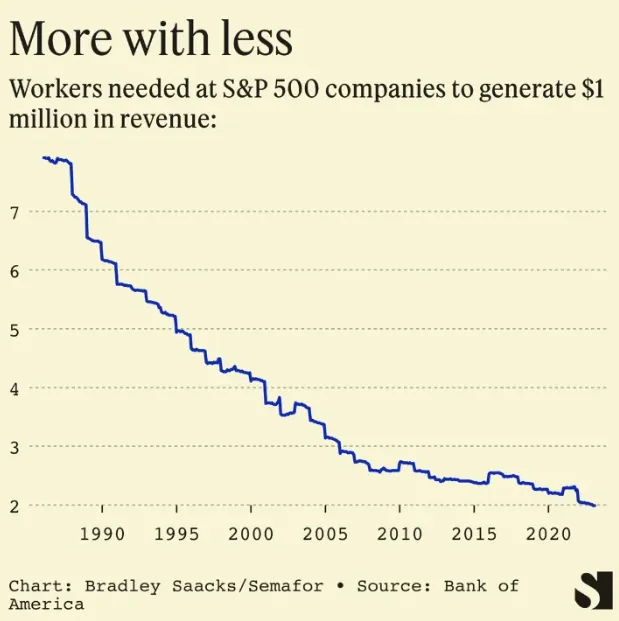
In a future where wealth is uber uber centralized in the hands, err, GPUs of a superhuman AI, we’re gonna need some way to fairly distribute the schmoney to all of humanity. The key problem we need to solve is ensuring that each individual gets their fair share of the pot of gold.

Let’s make the maths easy. Say GPT-25 makes $100, which in our example stands for a lotta money. And in this example, there are only 100 people living on Earth. In theory, you’d want each hooman to collect their friendly AI airdrop of $1. But in practice, this is super hard because at least a few people outta the 100 will surely try to double dip to try to get, say, $2 instead of $1. It’s the classic Sybil problem all over again.
So yet again, we run into this problem of: “How do we actually verify that 1 human = 1 human? Well, Worldcoin could be part of the solution here. It could, in theory, provide part of the infrastructure to support a fairly distributed UBI. In fact, I’d go as far as to say that, as of right now, Worldcoin is the only plausible solution that could handle a truly global UBI system.
So there you have it. That’s my view of the…
- short: saving Elon Musk and Taylor Swift’s mental health — aka defeating spam and bots
- medium: differentiating between humans and AIs on the Internet
- long-term: fairly distributing UBI
…problems Worldcoin is trying to solve. Will Worldcoin actually solve these problems? I don’t know! No one knows. But I do know, despite all the jokes and memes, that these are massive, societal-scale problems that require urgent attention. I hope someone solves them, whether it’s Worldcoin or another project. But for right now, Worldcoin offers the most credible solution, which at the very least, demands our eye-ttention.